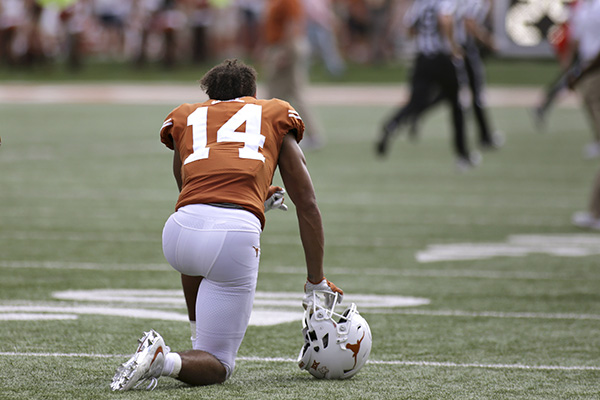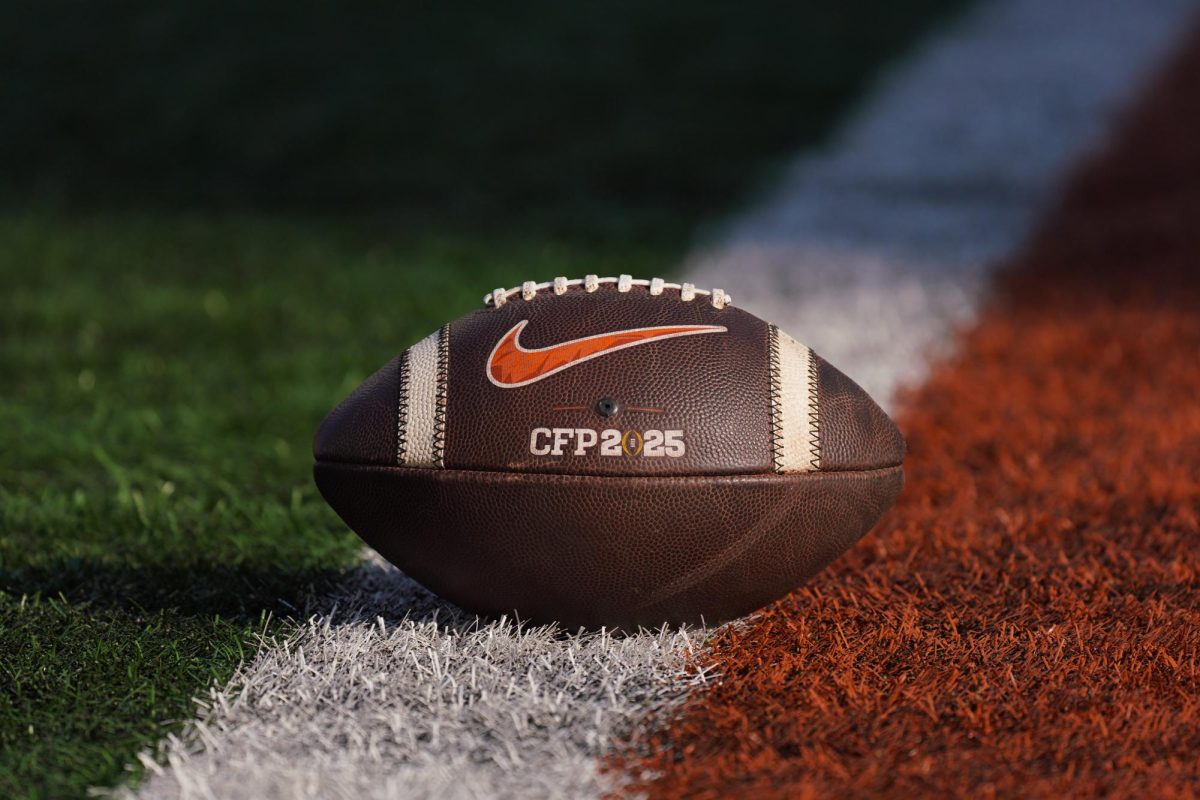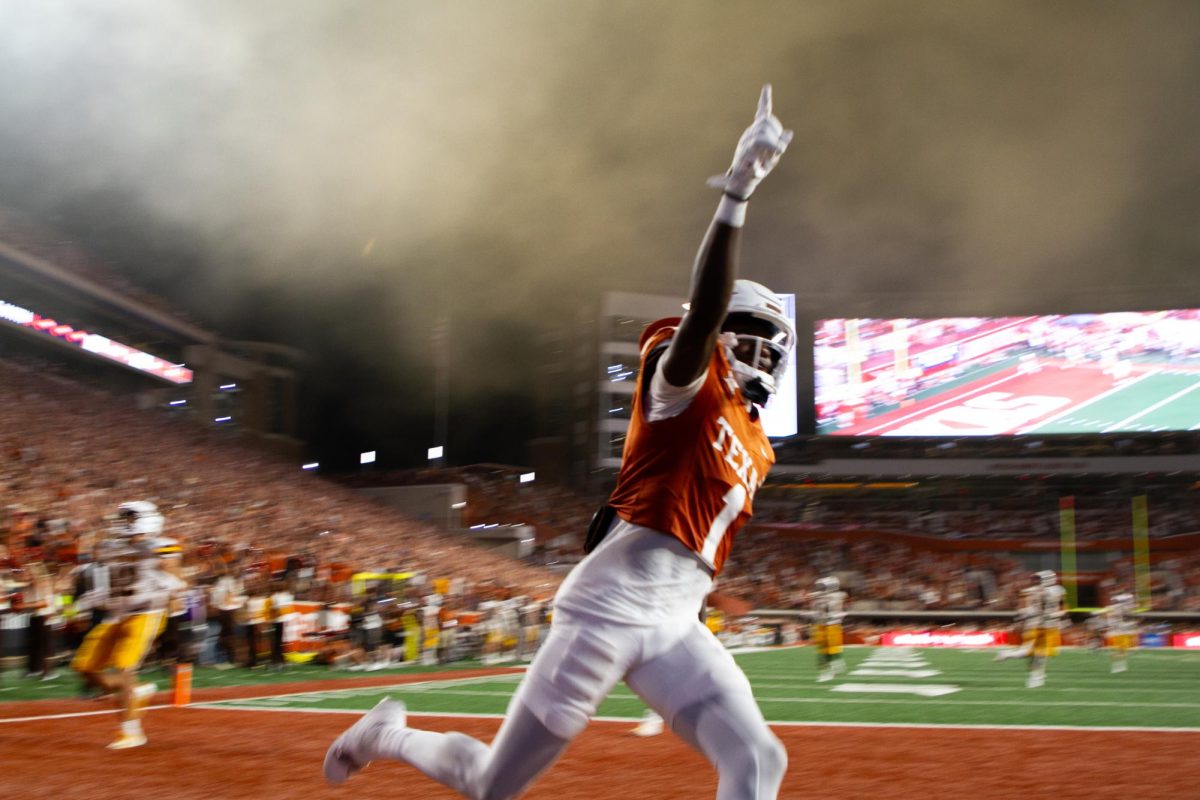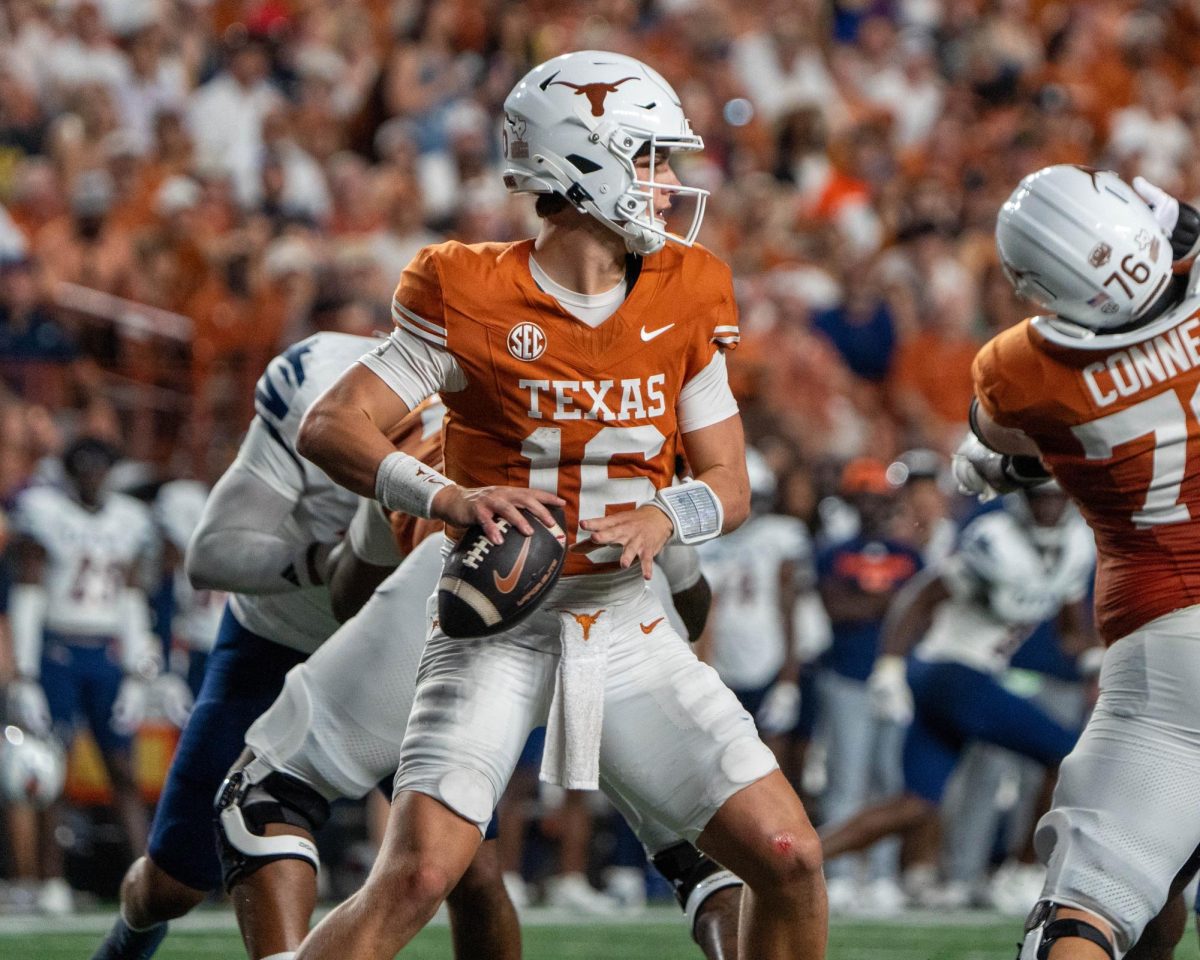The narrative surrounding sports at the University of Texas — and America at large — is changing.
Sports have shaped the University’s culture since 1893, motivating 100,000 strangers to stand, clad in burnt orange and white, in blistering heat together for several hours on Saturdays each fall. But our historic rituals, where giant cows and shouts of “Point Texas!” reign supreme, may not come to pass this year. As COVID-19 plagues the nation, it also leaves sports fans with a gaping hole in our schedules — and our identities.
Perhaps we love sports so much because they’re a picture of the American Dream, an arena where the underdog can become the greatest, where teams can come back to win it all — and where Black and other people of color can have a shot at the pursuit of happiness.
“(Sports) is kind of a ridiculous thing,” said Tolga Ozyurtcu, an assistant professor of instruction in the Department of Kinesiology and Health Education. “It’s not life or death, but it still seems to matter. If all that matters is the outcome, why do I need to spend four hours watching? But we seem to feel like we do, or that it’s worthwhile.”
We feel lost without sports, but we’re saving lives in more ways than one. We’ve been rid of a distraction, yet we still have something to root for.
America’s racial reckoning couldn’t have come at a better moment. The pandemic has given us time to reevaluate what really matters and to determine who or what it is we stand for — besides the Longhorns, besides our favorite teams. It’s much easier to forget about issues if the protest ends after the “National Anthem,” except for now, when games aren’t in play.
Athletes, too, are navigating a world where sports, literally, can no longer distract them from what’s important. Just as the general public explores its identity outside of consuming sports, Black athletes in particular have the unique opportunity to explore their identities outside of playing them, to figure out what really matters in their lives. Sports aren’t at the top of the list for many.
Several UT athletes have put their careers on the line in the fight for racial justice, showing the world they are more than the game they play. On July 2, Texas junior linebacker DeMarvion Overshown announced his intent to sit out all team activities until “real action” was taken by the University regarding its student-athletes’ requests, which included the renaming of buildings honoring racist figures and the removal of “The Eyes of Texas” as the school song.
“This is something I'm very passionate about, and I can not continue to perform for a program that doesn’t show me the same love and support I do for them,” Overshown wrote.
Yet, critics tell athletes to “shut up and dribble,” even when their voices specifically have made significant strides in dismantling systems of oppression.
UT will rename the Robert L. Moore Building and erect a statue of Julius Whittier, Texas’ first Black football letterman, among other actions to promote a more diverse and inclusive campus, as announced in a statement Monday. None of these changes may have been possible without student-athletes, the actors in the picture of the Dream who give us pride in our universities and cities.
“Is it possible that (sports) become a place where we are our best selves?” Ozyurtcu said. “Or is it just simply kind of a mirror of what goes on in society?”
The games don’t matter right now, but sports — as a unifier of people and America’s mirror — matter now more than ever.
Sports aren’t in play, but the game is still changing.





















